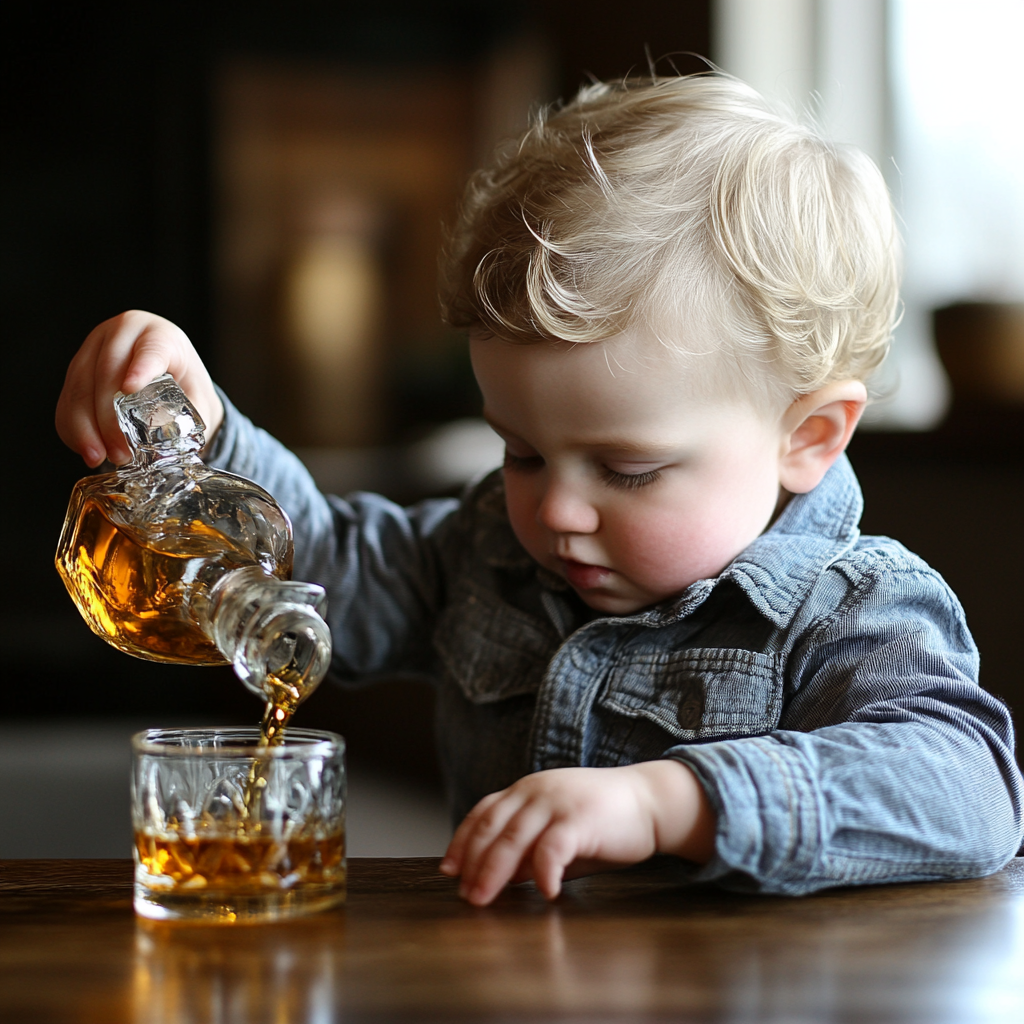When it comes to feeding your baby, you’re likely extra cautious about what goes into their little tummy. As parents, we want to give our infants the best nutrition while making sure we’re avoiding anything that might cause harm. With so many sweet options available, honey might seem like a tempting, natural addition to your baby’s diet. But is it safe for infants to eat honey?
At IXWOOD, we believe in the goodness of nature’s purest offerings, so let’s dive into the question of whether infants can eat honey and what you should know before introducing it to your baby.
The Risk of Honey for Infants
While honey is a natural sweetener loved by many for its rich flavor and health benefits, it’s not safe for infants under 1 year old. The reason lies in the risk of botulism, a rare but serious type of food poisoning caused by Clostridium botulinum bacteria.
Clostridium botulinum spores are naturally present in the environment, including in soil and dust, and sometimes, in honey. While the bacteria are harmless to older children and adults because our digestive systems can handle them, an infant’s immature digestive system can’t fight off these spores as effectively.
If an infant under 1 year old consumes honey, the spores can grow and produce toxins in their gut, leading to infant botulism. This condition can cause muscle weakness, breathing problems, and even paralysis, which is why honey should never be given to babies under the age of one.
What Is Infant Botulism and How Does It Happen?
Infant botulism occurs when the spores of Clostridium botulinum germinate and produce toxins in an infant’s intestines. Babies under the age of one are particularly vulnerable because their digestive systems are not yet fully developed, and they don’t have the same level of beneficial bacteria in their intestines that can help protect against harmful microbes.
When these spores find their way into the baby’s system—through foods like honey—they can multiply and produce toxins that affect the muscles and nervous system. Symptoms of infant botulism may include:
- Constipation
- Weak cry
- Drooping eyelids
- Difficulty swallowing or sucking
- Floppiness or muscle weakness
If you suspect your baby might have botulism, it’s important to seek medical attention immediately. Fortunately, botulism is treatable with antitoxin therapy, but early diagnosis is key.
Why Can’t Infants Eat Honey Before One Year Old?
The risk of botulism is the main reason why infants should not eat honey. As mentioned earlier, an infant’s gut is not yet fully developed, and it’s unable to handle the Clostridium botulinum spores that may be present in honey. Although honey is perfectly safe for older children and adults, the immune system of an infant is still developing, making them more susceptible to infections.
For babies older than 12 months, the digestive system is mature enough to process and defend against Clostridium botulinum, so it’s generally safe for toddlers to enjoy honey. But until then, it’s crucial to avoid honey as part of your infant’s diet.
What Can You Give Your Infant Instead of Honey?
Since honey isn’t safe for infants, it’s important to choose other appropriate foods and sweeteners to introduce during their early months. Fortunately, there are plenty of safe, healthy alternatives for sweetening your baby’s food:
-
Breast milk or formula: For babies under 6 months, breast milk or formula provides all the nutrition they need. After 6 months, you can introduce solid foods but should still rely on breast milk or formula as the primary source of nutrients.
-
Pureed fruits: Sweet fruits like bananas, apples, and pears can provide natural sweetness to your baby’s food. These fruits are packed with vitamins and nutrients, and their natural sugars are much safer than honey for your infant.
-
Unsweetened baby foods: There are plenty of organic, unsweetened baby food options available that are naturally sweet without any added sugars or honey.
-
Oatmeal or porridge: A bowl of oatmeal or porridge made with breast milk or formula is a great, nutritious option for your baby and can be made sweeter with fruit purees or a dash of cinnamon.
What About Older Children and Adults?
For older children and adults, honey can be a healthy and beneficial food when used in moderation. It’s naturally rich in antioxidants, vitamins, and minerals, including vitamin C, calcium, and magnesium. Honey is also known for its antimicrobial properties, which can help soothe sore throats, improve digestion, and offer a quick energy boost.
IXWOOD offers the finest pure honey, so if you're looking for a natural, high-quality honey for your family’s needs, you can trust that our honey comes from our own apiaries, ensuring the highest standards of purity and freshness.
Why Choose Pure Honey from IXWOOD?
At IXWOOD, we offer only the highest-quality, pure honey, sourced directly from our own apiaries. Our honey is packed with natural goodness and free from additives, ensuring you get the most nutritious and flavorful honey available. Whether you're using it to sweeten your tea, drizzle over your favorite dessert, or mix into your recipes, IXWOOD Honey is the perfect natural sweetener for your family.
Conclusion: Keep Honey Off Your Baby’s Plate Until They’re One
While honey is a delicious and natural sweetener for older children and adults, it’s important to never give honey to infants under one year old. The risk of botulism is simply too high, and your baby’s digestive system isn’t mature enough to handle it. Once your baby hits the one-year mark, honey is generally safe to incorporate into their diet—but always in moderation.
For now, stick with safe and nutritious options like pureed fruits, breast milk, or formula to keep your baby’s diet healthy and free of harmful bacteria. And when the time comes, feel free to enjoy the wonderful benefits of pure honey from IXWOOD, knowing it’s the best quality available for your family.
Nature’s perfect sweetener is a gift, but it’s important to wait until the right time to introduce it to your little one’s diet. For now, let’s stick with what’s safest and healthiest for your infant’s growing body.


